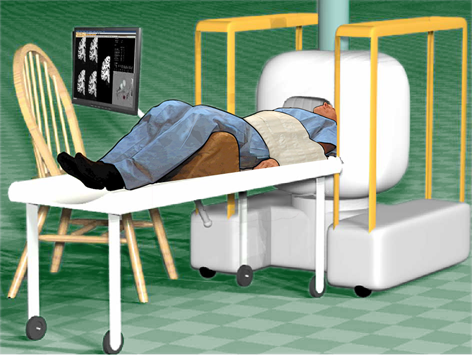Ultra Low Field MRI and EPR Imaging
MRI is exceptionally expensive and therefore places enormous pressure on the cost of healthcare and results in considerable socioeconomic disparity in access]. State-of-the-art instruments depend on the presence of large and heavy cryogenically-cooled magnets that require constrained siting. To be used practically, the magnet must produce a magnetic field with homogeneity comparable to the line width of the NMR signal (typically on the order of 10 Hz, or about 0.15 ppm at 1.5 Tesla), which is therefore especially challenging at high fields and the magnet is the most expensive single component of the MRI instrument. The large magnetic fields pose significant safety risks as well, and have resulted in multiple serious permanent injuries and fatalities from projectile effects; the relatively large radio frequency energies used in MRI can, and do, cause tissue damage due to heating [2]. Technologies to relieve these many limitations could have a transformative impact on health care.
Capitalizing on advances in low temperature physics from work performed originally for the space program for the detection and measurement of exceedingly small signals. Specifically, rather than use electromagnetic induction to detect the signal, as in traditional MRI our group, and others, have performed direct magnetometry of the NMR signal using superconducting quantum interference devices (SQUIDs). This allows us to propose developing a novel imaging instrument capable of high quality imaging that nevertheless dramatically reduces the weight, siting limitations, hazards, footprint, complexity and perhaps most importantly the cost as compared to current generation devices.
In a related project, funded by the NIH (R21 RR026238-01), we are developing an ultralow field electron parmagnetic resonance (EPR) device designed to detect and to image free radicals in vivo, a goal which is impractical at high field due to safety constraints.

See also: http://www.epochmri.com |

